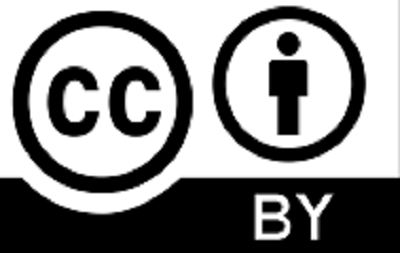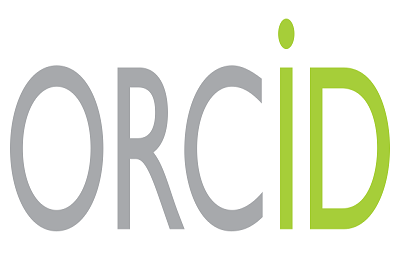التوافق الدراسي وأساليب التعلم لدى طلاب كلية التربية البدنية وعلوم الرياضة في جامعة الموصل
محتوى المقالة الرئيسي
الملخص
يهدف البحث إلى:- التعرف على أنماط وأساليب التعلم والتوافق الدراسي لدى طلاب كلية التربية البدنية وعلوم الرياضة، و استعمل الباحث منهجا وصفيا لمناسبته مع اهداف الدراسة، اذ تمثل مجتمع البحث طلاب كلية التربية البدنية بجامعة الموصل للعام الدراسي (2022-2023)، وقد بلغ عددهم (736) طالبا وطالبة تم توزيعهم على اربعة مراحل دراسية، واعتمد الباحث اداتين للدراسة هما: (مقياس أنماط وأساليب التعلم المعد من قبل (انتوستل) والذي تم تعريبه من قبل محمود عوض الله (1988)، ومقياس التوافق الدراسي لـ(الزيادي، 1964) والذي تم تحديثه وتعديله من قبل الجنيدي جباري (1985))، وقد خرج الباحث باستنتاجات عدة أهمها: عدم وجود علاقة ارتباط معنوي بين أساليب التعلم لدى طلاب كلية التربية البدنية وعلوم الرياضة وبين توافقهم الدراسي، وفي ضوء الاستنتاجات أوصى الباحث بتنوع وتنظيم المحتوى التعليمي والأدوات والأجهزة والوسائل التعليمية بما يسهم في خلق توافق دراسي من شأنه ان يكسب الطلبة أساليب تعلم متنوعة وجديدة.
تفاصيل المقالة

هذا العمل مرخص بموجب Creative Commons Attribution-NonCommercial 4.0 International License.
المراجع
Abdulrahman, M. A., Ali, B. A., & Hammad, S. H. (2020). The Impact of the Use of Stairs and Hoops Exercises in the Compatibility and Speed of the Skill Performance of the Players of Ramadi Football Club for Youth. International Journal of Psychosocial Rehabilitation, 24(05).
Abu Hashim, A.-S. M., & Safinaz, A. (2007). Distinctive learning and thinking styles of university students in light of their achievement levels and different academic specializations, Symposium on the Academic Achievement of the University Student, Reality and Ambition (p. 2). Taibah University, Madinah.
Al Diwan, L. H. (2009). Effective Methods of Teaching Physical Education. Al-Nakhil Press, Basra.
Al-Alwan, A. A.-F. (2008). General Psychology, Foundations - Principles and Origins (p. 2). University Knowledge, Egypt.
Al-Dahri, S. H. (2014). Basics of Administrative Psychology and Its Theories (p. 13).
Al-Hazmi, O. M., Abu Al-Fath, M., & Hamid, J. (2013). Preferred learning styles among students at Taibah University and their relationship to their academic grades. Taibah University Journal, Kingdom of Saudi Arabia, 8.
Awad, Y. O., Lamia, H. D., & Shehab, G. S. (2022). Building A Cognitive Achievement Scale For The Skills Of Smash Hitting And Defending The Court In Volleyball For Students. Journal of Positive School Psychology, 6(6). https://journalppw.com/index.php/jpsp/article/view/7238
Babash, A., & Ismaili, Y. (2023). The role of psychological counseling in raising the level of academic adjustment among final-year secondary school students. Journal of Social and Human Sciences, 13(1), 89–112.
Balabel, A.-J. J. (1985). Academic compatibility and its relationship to academic achievement, scientific inclination, and literary inclination among university students [Unpublished thesis]. Umm Al-Qura University, Makkah Al-Mukarramah, Saudi Arabia.
Bousfar, D. (2011). Psychological independence from parents and its relationship to academic adjustment among resident university students (18-21) years old [Master’s thesis]. University of Meloud.
Cano-Garcia, F., & Hughes, E. H. (2000). Learning and thinking styles: An analysis of their interrelationship and influence on academic achievement. Educational Psychology, 20(4), 413–430.
Dunn, R., & Dunn, K. (1989). Learning style inventory. Lawrence, KS: Price Systems. Inc.(Original Work Published 1975).
Dunn, R., & Griggs, S. A. (2000). Practical approaches to using learning styles in higher education. Bloomsbury Publishing USA.
Ibn Saleh, H. (2015). Psychological pressure and its impact on academic adjustment among schooled adolescents. Journal of Social Studies and Research, University of Martyr Hama Lakhdar, El Oued, 11, 6.
Kvan, T., & Jia, Y. (2005). Students’ learning styles and their correlation with performance in architectural design studio. Design Studies, 26(1), 19–34.
Mansour, A. M. S. A. at al. (2001). Educational Psychology (3rd ed, p. 272). Al-Obeikan Library.
Marwa, O. C., & Hajar, H. (2017). Academic adjustment and its relationship to achievement motivation among middle school adolescents [Unpublished master’s thesis].
Midoun, M., & Abi Moloud, A. F. (2014). Self-efficacy and its relationship to academic adjustment among a sample of middle school students. University of Kasdi Merbah, Ouargla, Journal of Humanities and Social Sciences, 17, 110.
Muhammad, G. A. M. (2024). Using introductory games to teach handball skills and their impact on technical performance and social adjustment among fifth-grade primary school students. Journal of Studies and Researches of Sport Education, 34(1). https://doi.org/DOI:https://doi.org/10.55998/jsrse.v34i1.460
Oudah, A., Abbood, R., Shabib, S., Aldewan, L., & Ghazi, M. (2024). Developing Physical Education Curricula Within the Framework of Digital Transformation to Achieve Sustainable Development. Teacher Education and Curriculum Studies, 9(3), 86–102. https://doi.org/10.11648/j.tecs.20240903.15
Qatami, Y., & Qatami, N. (2000). The Psychology of Classroom Learning (p. 4). Dar Al-Shorouk.
Radadi, Z. bin H. (2002). Beliefs, defensiveness, and self-regulation strategies for learning and their relationship to academic achievement. Journal of the Faculty of Education, Zagazig, 41, 173.
Salem, M. A. A. (1988). Learning styles among university students and their relationship to their academic achievement. Journal of the Faculty of Education, Zagazig University, 3(6), 131–168.
Sayed, N. (2006). Family climate and its relationship to both methods of coping with life problems and academic adjustment among a sample of diabetic patients [Unpublished doctoral dissertation]. Ain Shams University.





 IASJ
IASJ CC-BY-4.0
CC-BY-4.0 turnitin
turnitin ISSN
ISSN DOAJ
DOAJ Crossref
Crossref GoogleScholar
GoogleScholar Orcid
Orcid